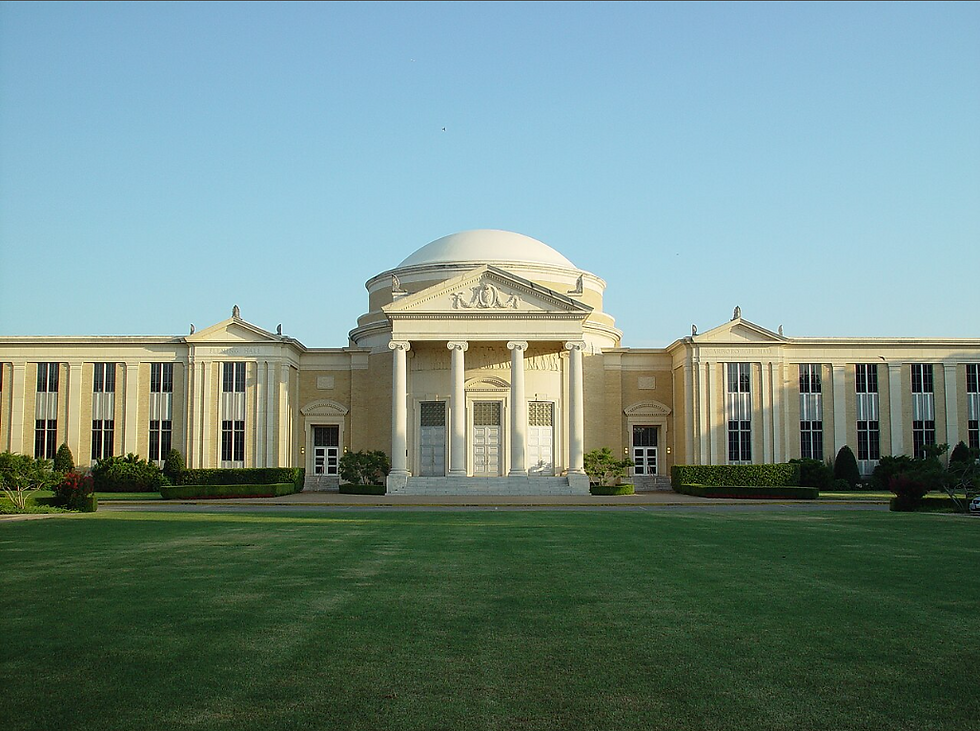Review of Doug Reed’s “Dear Church, a Cure for the ‘Deconstruction’ Epidemic”
- Mario Espinosa

- Jun 29, 2025
- 4 min read

Doug Reed’s recent article in The Christian Post, “Dear Church, a Cure for the ‘Deconstruction’ Epidemic,” offers a timely and necessary examination of the rising trend of spiritual deconstruction—particularly among younger Christians disillusioned by shallow or performative expressions of faith. Rather than responding with defensiveness or condemnation, Reed issues a countercultural invitation: for the Church to return to the ancient, time-tested rhythms of spiritual formation that have nourished God’s people throughout history. His central thesis is both challenging and refreshingly simple: if the Church hopes to offer something of enduring value, it must return to its sacred roots. The Church doesn’t need to be trendier—it needs to be truer.
As someone deeply invested in the integration of theology, spiritual formation, and sound doctrine, I found myself resonating with much of Reed’s argument. He wisely calls the Church back to disciplines such as Sabbath-keeping, fasting, Scripture, and prayer—not as nostalgic relics, but as practices rooted in the character of God and embodied by Jesus Christ Himself. These spiritual practices, he argues, are not outdated—they are enduring, humanizing, and deeply divine.
One area that would benefit from greater clarity, however, is Reed’s reference to the Sabbath. While he rightly elevates it as part of God’s sacred rhythm—a weekly gift of rest modeled in Genesis, codified in the Ten Commandments, and honored by Jesus—the article never clearly identifies which day is in view. This distinction matters. A return to biblical fidelity demands specificity: biblically and historically, the Sabbath refers to the seventh day of the week, from sunset Friday to sunset Saturday—a rhythm anchored in creation and preserved by the Jewish people and early Christians. If the Church is being called to restore this sacred rhythm, naming it clearly strengthens the article’s credibility and gives readers a clearer path to apply its insights.
To his credit, Reed acknowledges that the Seventh-Day Sabbath is “largely ignored by the modern Church” and calls for its restoration. I wholeheartedly echo this call. Yet for it to gain traction, the Church must confront long-standing misconceptions and traditions that have replaced biblical observance with institutional convenience. This renewal also requires theological courage—to wrestle with how and why certain sacred practices were abandoned, and whether we are willing to recover them not as burdens, but as graces.
Throughout the piece, Reed challenges the Church to “return” to the foundational rhythms of the faith—what he calls the “ancient paths.” These include prayer, fasting, Scripture, confession, communion, and authentic community. Such language may resonate differently across traditions. While theologically rich, it can draw skepticism from those who associate it with “restorationism,” a theological impulse that seeks to re-create the early Church. Historically, restorationist movements have offered vital insights, but they’ve also attracted valid critique: doctrinal fragmentation, rejection of creeds, excessive literalism (or “patternism”), legalism, and sometimes a neglect of either the Old or New Testaments. In some cases, they’ve fostered an exclusivist spirit. These concerns aren’t disqualifying, but they do warrant thoughtful engagement if we are to pursue reform without repeating past mistakes.
At the same time, it’s important to clarify that this call to restore biblical practices is not an endorsement of Messianic Judaism, Hebrew Roots, Hebrew Israelism, or any variant of “Torahism.” The invitation here is not about embracing a Jewish identity or elevating Mosaic law above the gospel. Instead, it is about following Jesus Christ in a way that is biblically grounded and Spirit-led—recovering the life-giving rhythms He practiced and passed on to His disciples. The goal is not to Judaize the Church, but to re-root it in formative spiritual habits that shape us into Christlikeness.
Reed’s broader exhortation finds sharp relevance in Jesus’ rebuke of the Pharisees in Mark 7:1–13, where He warns against elevating human traditions above divine commands. This remains a relevant caution today. Many modern Christian practices—such as Sunday worship, Christmas, and Easter—are defended with seemingly theological rationale. Yet when these claims are placed under theological scrutiny, what often becomes clear is that they serve to protect inherited customs at the expense of biblical truth. Despite their familiarity, these traditions frequently lack strong scriptural foundation and are more reflective of post-biblical church history than of the biblical narrative itself. For believers already wrestling with disillusionment, this disconnect can deepen the sense of spiritual fragmentation and fuel the impulse to deconstruct.
One important layer to Reed’s vision that deserves further emphasis is the reintroduction of biblical feast days alongside Sabbath observance. Passover, Pentecost, Tabernacles—these feasts are not merely “Jewish holidays” but Christ-centered holy days embedded in the biblical narrative. The earliest believers didn’t keep them to earn righteousness; they embraced them because they saw Jesus reflected in each one. Unlike modern holidays of ambiguous origin, these feasts are rich in prophetic and theological meaning.
Reed captures the heart of his message beautifully when he writes, “The ancient practices are not outdated; they are tested. They are not irrelevant; they are deeply human and deeply divine.” That truth is both comforting and convicting. These sacred practices offer not only continuity with our spiritual ancestors, but healing and rootedness in a fragmented age. In a culture obsessed with speed, novelty, and convenience, returning to the ancient paths may be the most radical and redemptive thing the Church can do.
If the Church is willing to slow down, examine its theological reflexes, and open itself to the Holy Spirit’s renewing work through these ancient disciplines, perhaps we can stem the tide of deconstruction not by silencing doubt, but by embodying a faith worth reconstructing. And if we embrace these practices not as relics of a bygone era, but as time-honored rhythms that form us into the image of Christ, we may find that faith need not be dismantled at all—but rebuilt on a foundation that has already stood the test of time.









Comments